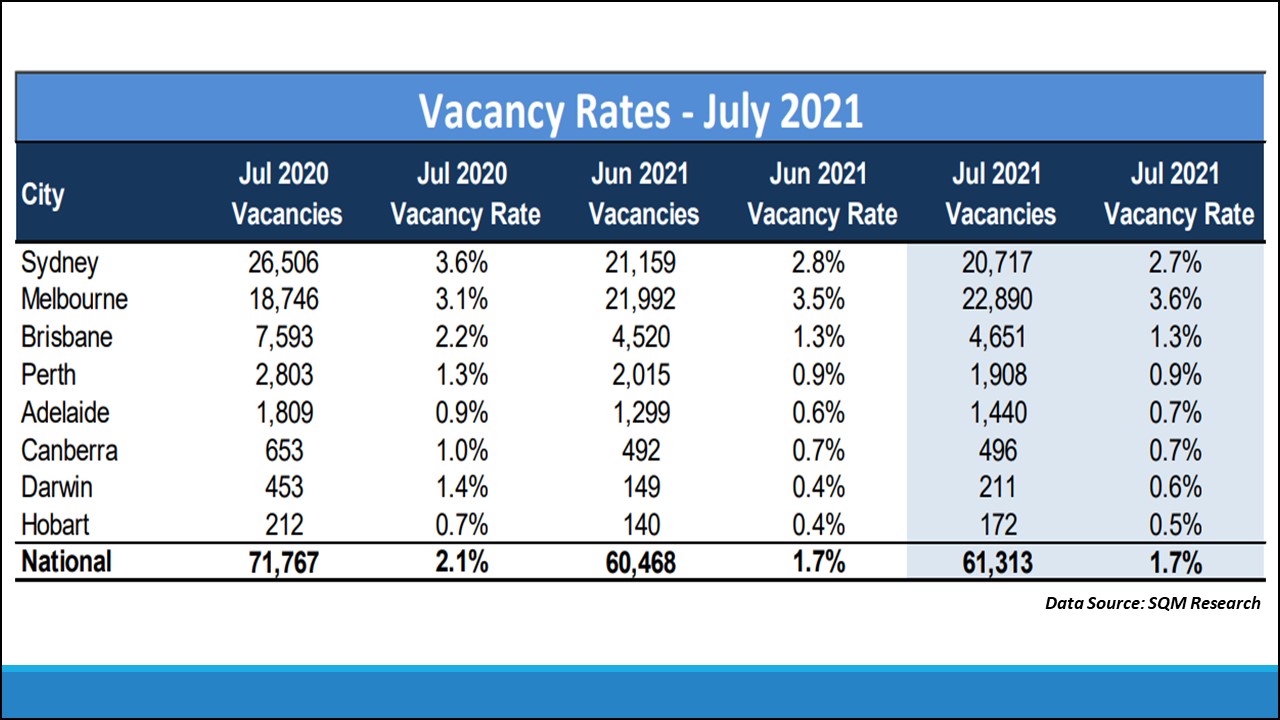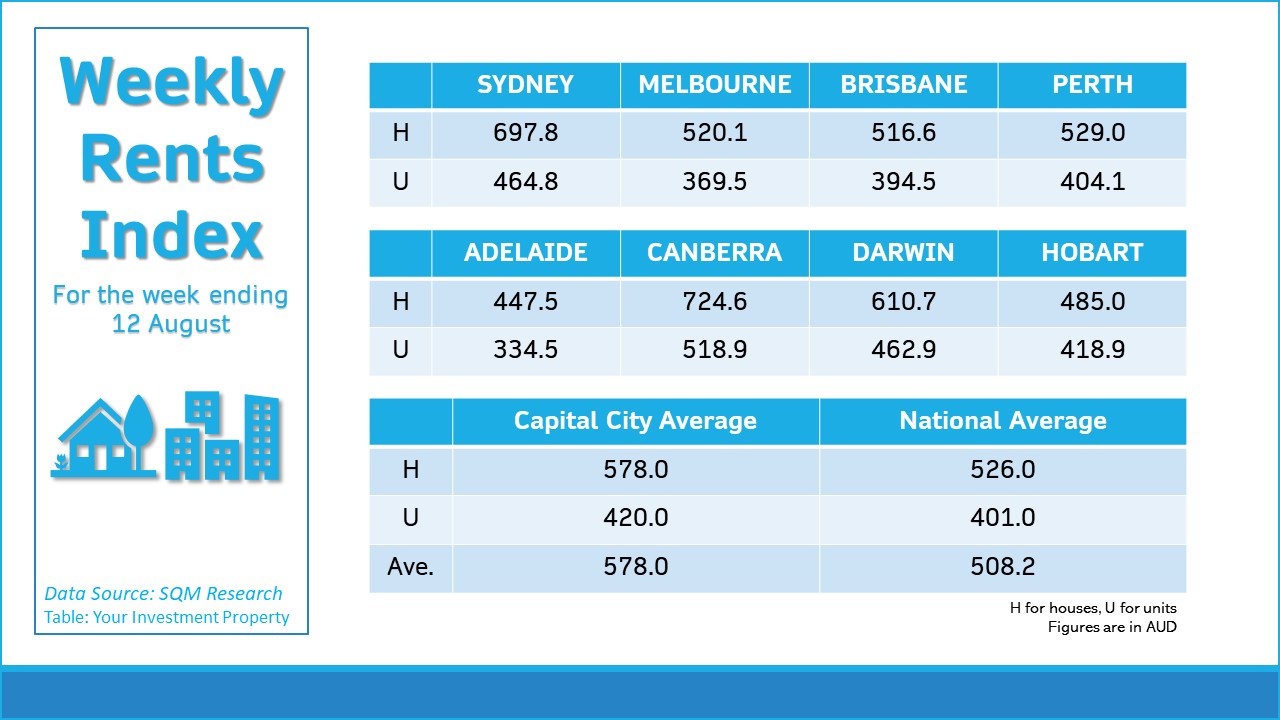Rents in some states and regional markets have risen substantially from where they were last year, as vacancies continue to tighten.
The latest report from SQM Research found national combined rents for houses and units rose by 13.7% in July on an annual basis.
This growth was likely driven by the rents in regional markets, as the capital city average was only 6.9%.
The data suggests the new wave of lockdowns in NSW and Victoria have triggered a renewed interest in regional living, with many Aussies intending to flee from the restrictions in major cities.
On a national level, vacancy rates remained tight at 1.7%, similar to the previous month.
However, there were less vacancies this month than a year ago, when the national vacancy rate was 2.1%.
SQM Research managing director Louis Christopher said the persisting strain in vacancies continue to put pressure in rents across Australia, particularly in regional areas.
However, he did notice an interesting trend in the latest rent data.
"It is somewhat perplexing to see both regional Australia and the capital cities record surges,” Mr Christopher said.
“Given the ongoing international border closures and still relatively high completions, the national rental market should be at least more balanced.
"That may well still happen if lockdowns persist through to summer as it is likely many people living in Sydney and Melbourne may attempt to move elsewhere."

Smaller cities record whopping rent increases
Over the year, rents rose the strongest in Darwin, where tenants pay 25.3% more for houses and 29% more for units. Weekly rents for houses in Darwin were among the costliest at $611.
This coincides with Darwin's vacancy level, which is one of the lowest among capitals at 0.6%.
Canberra, however, still has the most expensive rent over the month at $724.6 weekly for houses, representing a 13.7% gain over the year. The city's vacancy rate also remained low over the month at 0.7%.
Melbourne was the only capital city to report declines in both house and unit rents.
Over the year, rents in the city declined by 0.4% to $520 for houses and by 6.5% to $369 for units.
The drop in unit rents makes Melbourne the third cheapest capital city to rent a unit in.
